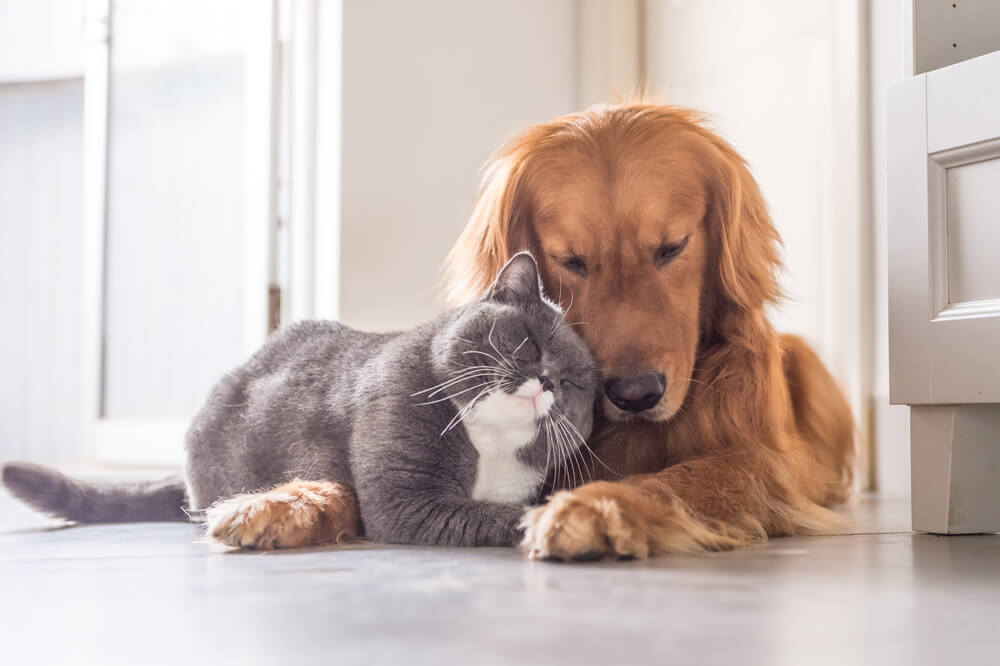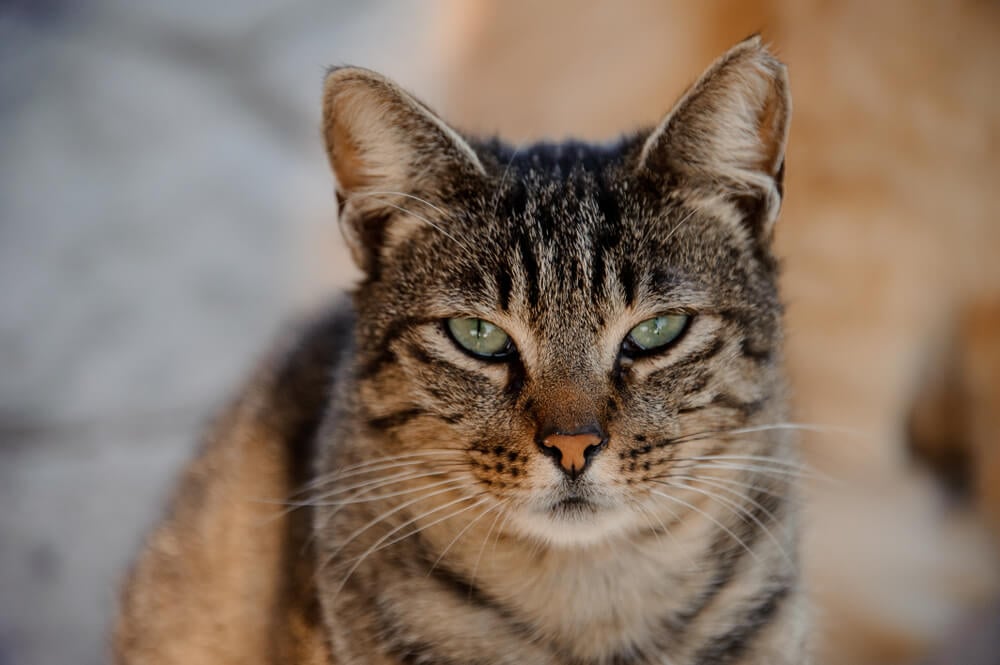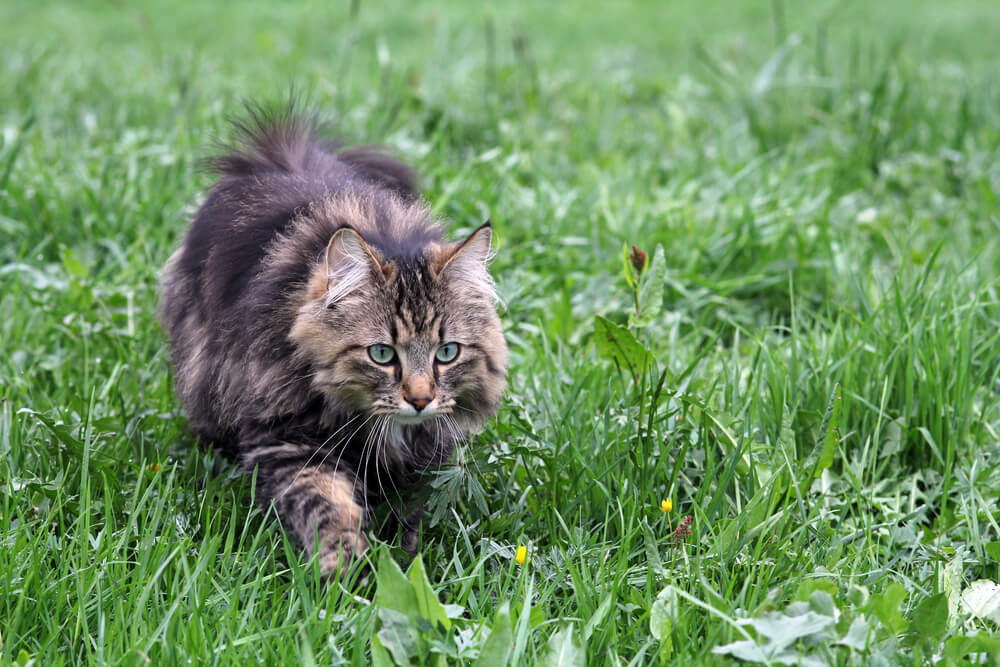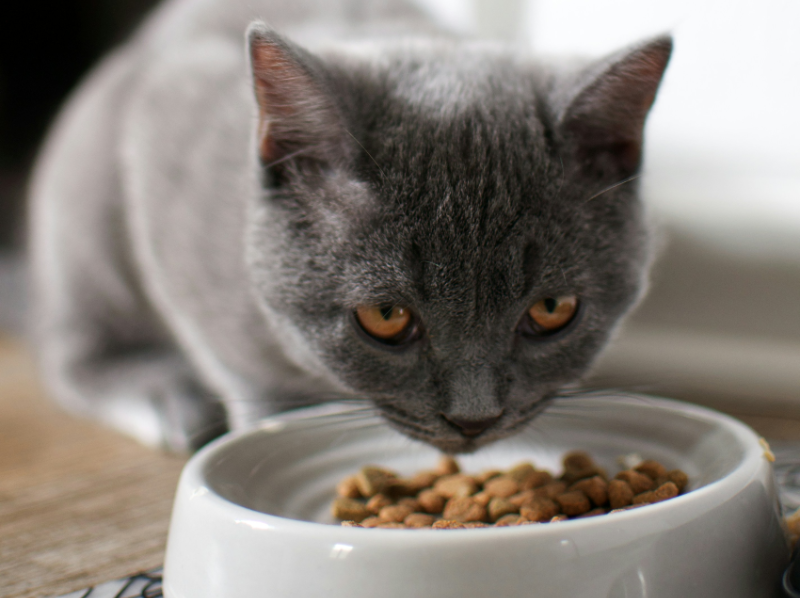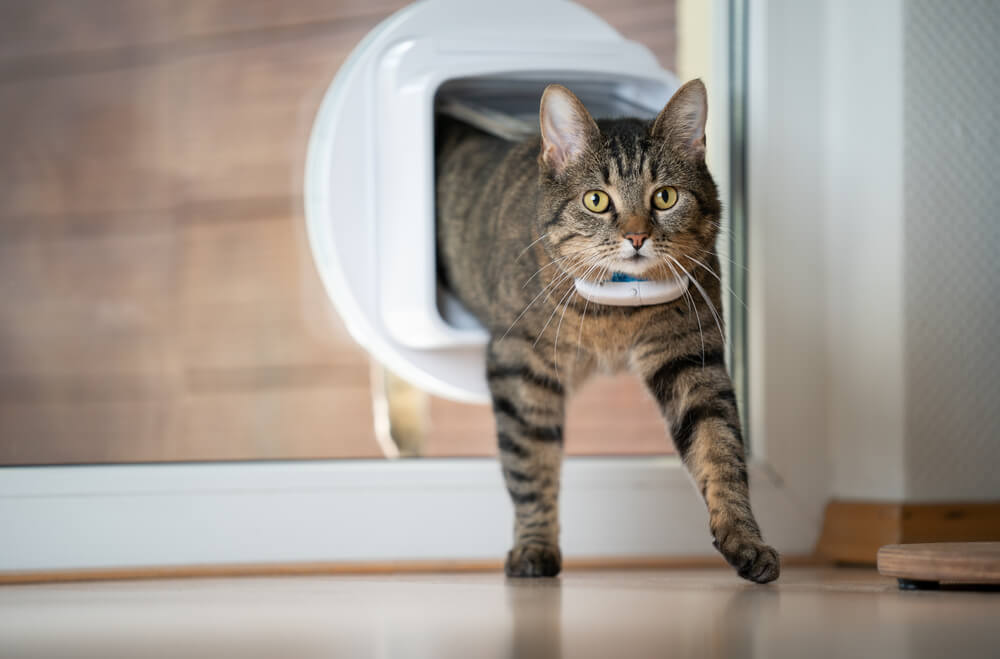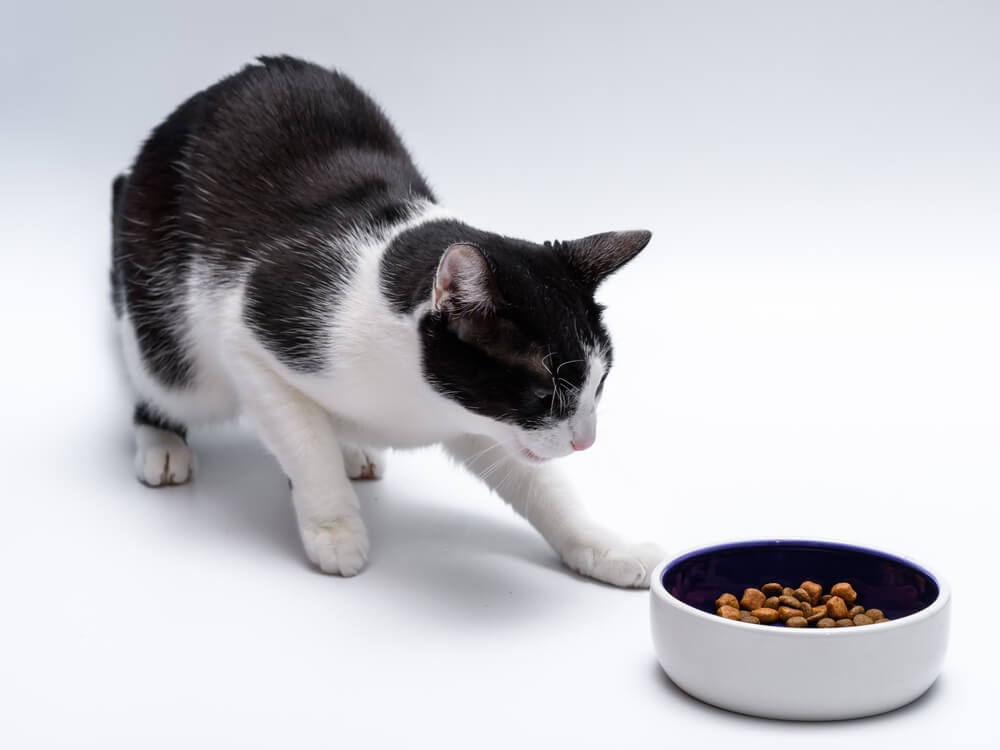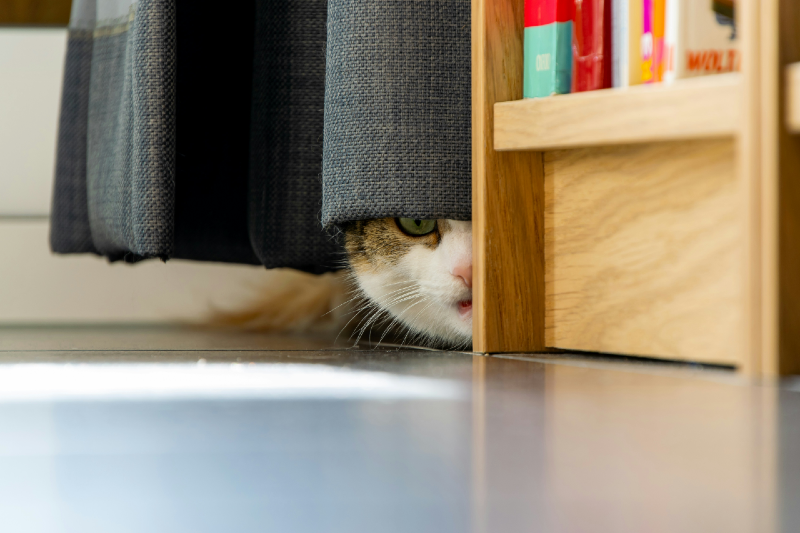
Loud noises are not a cat’s friend. As a result, fireworks’ bangs, screeches, and whooshes can confuse, unsettle and scare your cat.
And on special celebrations such as the Fourth of July or New Year’s Eve, when the sky is alive with explosions, your cat might be out of their mind with fear.
If you have a cat who’s particularly fearful of fireworks, we have advice on how to help them through the stressful evenings and nights when fireworks are being set off all around you.
How can I tell if my cat is scared of fireworks?
Most cats show obvious signs of fear when fireworks explode — they may be physically startled by the bangs, with their ears flattened back, jumping and leaping at the loud noises, acting skittish, running to hide or excessively grooming.
Other signs may be more subtle, however. They may go off their food and drink, seem more restless than usual, and pace up and down or around in circles. Physically, their pupils may be dilated and their whiskers could droop downwards.
All are signs that your cat is feeling uneasy, fearful and stressed.
How can I keep my cat calm during fireworks season?
Staying with your cat on nights like the Fourth of July or New Year’s Eve will help them feel safer and less anxious.
If you do go out for the evening, you can take certain precautions to ensure your cat feels less anxious, such as making sure there’s a litter tray nearby, and there are cardboard boxes or a safe place they can retreat inside if they feel unsafe. You might even consider putting a bed high on a counter or on top of a closet if your cat likes climbing and feels safer at an elevated height.
One thing you can do to increase your chances of your cat being safe if they bolt and run off due to fireworks is to ensure their microchip is up to date with your current contact details. Also, make sure their collar has your details on in case they flee and are discovered by a neighbor or local resident.
Other tips to help make your cat feel cozier:
- Keep your cat indoors at night
Starting a few days before the Fourth of July, ensure your cat stays inside once the sun has set, as people often set off fireworks in the run-up to the big night.
- Leave the television on
Some background noise may help your cat feel a little safer. It may also aid in disguising some of the firework noises coming from outside.
- Don’t shut them in one room
Being confined to a single room could make some cats feel more stressed as they don’t have anywhere to hide if they feel unsafe. Leave them access to a number of different rooms if you’re going out so they can move around and hide wherever they feel safest.
- Try a pheromone plug-in
A pheromone plug-in diffuser releases pheromones into the air which may help some anxious cats feel calmer. If you haven’t tried one before, it could be worth testing one in the days and weeks before the Fourth of July to see if it helps your cat settle.
- Try not to get stressed yourself
Your cat picks up signals from your emotions, so if you begin to feel anxious when fireworks begin, it won’t help your cat. Try to remain calm and your cat will immediately feel calmer.
- Give them some treats
Distraction techniques can help calm your cat — a new toy or a snack they can chew will help keep their mind off what’s happening outside. Playing with them will also keep them busy when fireworks are banging in the sky.
- Keep handling to a minimum
It’s best to let your cat do their own thing when they’re afraid — if you try to pick them up to calm them or force them somewhere they don’t want to be you might end up aggravating them, increasing their stress levels so that they end up being aggressive towards you.
If your cat’s stress levels remain high during nights when fireworks are being set off despite trying various calming methods, it’s best to consult with your veterinarian surgeon. They may be able to prescribe anti-anxiety medication or suggest other ways to help calm them, such as behavioral therapy.
We uphold the highest editorial standards when creating the authoritative content pet parents rely on and trust.
Every piece of clinical content on the Cat Food Advisor is reviewed by our certified Veterinary Advisory Board, which consists of licensed veterinarians and medically certified specialists.
Our reviews are completely independent; we are not paid by any pet food company to promote their products favorably. We do not accept money, gifts, samples or other incentives in exchange for special consideration. For more information see our Disclaimer & Disclosure page.



